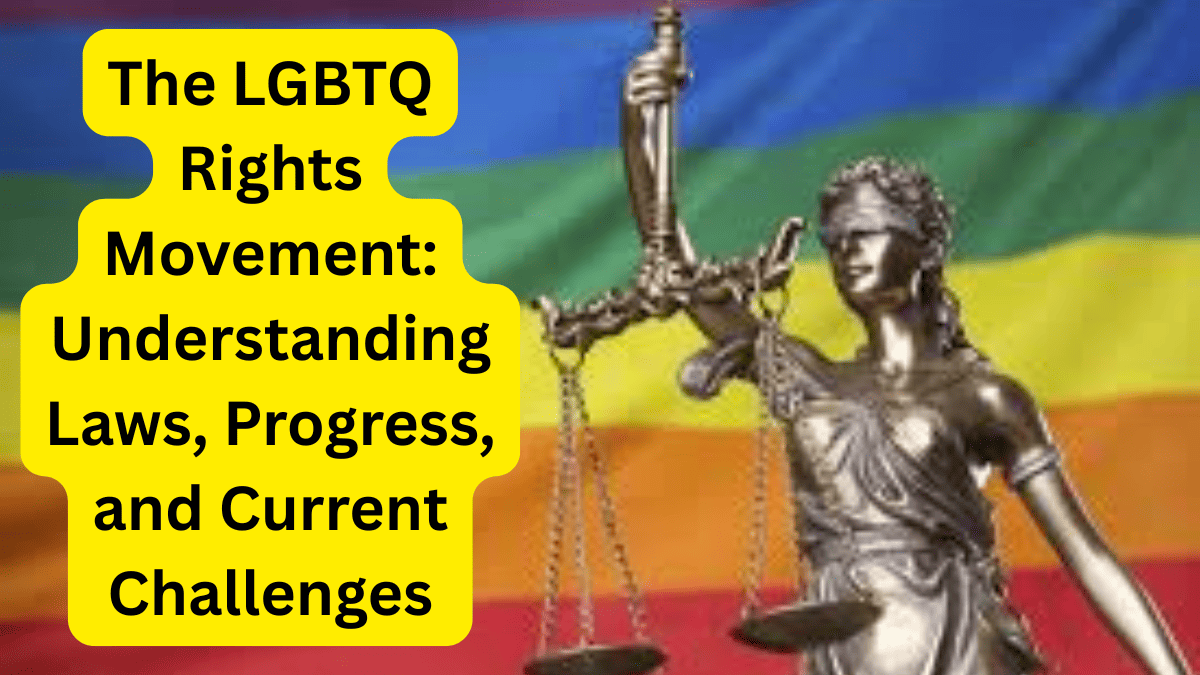The LGBTQ Rights Movement: Understanding Laws, Progress, and Current Challenges : (When did homosexuality become legal in the US, U.S. LGBTQ news, LGBTQ rights, LGBTQ rights movement, LGBT USA, Anti LGBTQ laws in Texas, LGBTQ rights news, LGBTQ rights history,)
The LGBTQ rights movement represents one of the most significant civil rights transformations of the past century, encompassing decades of activism, legal battles, and social change. This comprehensive guide examines the movement’s history, current legal landscape, and practical ways to stay informed and involved in ongoing equality efforts, with particular attention to evolving LGBTQ laws and protections.
Historical Milestones of the Movement
The LGBTQ rights movement has achieved remarkable progress through strategic activism and legal challenges that have fundamentally changed LGBTQ laws and social acceptance.
Foundational Events and Turning Points
- Stonewall Uprising (1969): The spontaneous protests following a police raid at New York’s Stonewall Inn galvanized the modern LGBTQ rights movement
- Decriminalization Efforts: Gradual repeal of sodomy laws culminating in Lawrence v. Texas (2003)
- AIDS Crisis Activism (1980s-90s): Organizations like ACT UP fought for medical research and against discrimination
Legal Marriage Breakthrough
- State-by-State Progress: Massachusetts becomes first state to legalize same-sex marriage (2004)
- Landmark Supreme Court Cases: United States v. Windsor (2013) and Obergefell v. Hodges (2015) establishing nationwide marriage equality
- Global Impact: Influence on international marriage equality movements
Current Legal Landscape and Protections
Understanding contemporary LGBTQ laws requires examining both federal protections and state-level variations that create a complex legal patchwork.
Federal Protection Framework
- Employment: Bostock v. Clayton County (2020) prohibiting discrimination based on sexual orientation and gender identity
- Hate Crimes Legislation: Matthew Shepard and James Byrd, Jr. Hate Crimes Prevention Act (2009)
- Military Service: Repeal of “Don’t Ask, Don’t Tell” (2011) and subsequent transgender service policies
State-Level Variations and Challenges
- Non-Discrimination Laws: 23 states plus DC have comprehensive protections, while others offer limited or no coverage
- Healthcare Access: Varied regulations regarding gender-affirming care and insurance coverage
- Youth Protections: Differing laws concerning school policies, sports participation, and healthcare consent
How to Stay Informed and Get Involved
Step 1: Track Legislative Developments
- Bookmark reliable sources like Movement Advancement Project’s equality maps
- Follow state legislative calendars (typically January-April for most states)
- Set up alerts for specific bill numbers or policy areas
Step 2: Connect with Advocacy Organizations
- National groups: HRC, ACLU, Lambda Legal, GLAAD
- State and local organizations providing community-specific resources
- Specialized groups focusing on specific issues (e.g., Transgender Law Center)
Step 3: Participate in Democratic Processes
- Contact representatives about pending legislation
- Attend town halls and community meetings
- Vote in local, state, and federal elections
Key Current Challenges and Focus Areas
Legislative Battles 2023-2024
- Healthcare Access: Over 500 bills introduced restricting gender-affirming care
- Education Policies: Curriculum restrictions and parental notification laws
- Public Accommodations: Ongoing debates about religious exemptions and access
Emerging Legal Frontiers
- Intersectional Issues: Addressing racial justice, economic inequality, and disability rights within LGBTQ advocacy
- Global Advocacy: Supporting international LGBTQ rights movements
- Technological Rights: Addressing digital privacy and online discrimination
Table: Major LGBTQ Legal Milestones Timeline
| Year | Event | Significance |
|---|---|---|
| 1969 | Stonewall Uprising | Sparked modern LGBTQ rights movement |
| 2003 | Lawrence v. Texas | Decriminalized same-sex relations nationwide |
| 2011 | DADT Repeal | Allowed open military service |
| 2015 | Obergefell v. Hodges | Legalized same-sex marriage nationwide |
| 2020 | Bostock v. Clayton County | Federal employment protection |
Important Movement Dates and Events
Annual Observances:
- June: Pride Month (commemorating Stonewall)
- October: LGBTQ History Month
- October 11: National Coming Out Day
- November 20: Transgender Day of Remembrance
- March 31: International Transgender Day of Visibility
Frequently Asked Questions
Q1: What are the most significant current threats to LGBTQ rights?
A: Current challenges include numerous state bills restricting healthcare access, education policies, and public accommodations, alongside ongoing efforts to limit federal protections.
Q2: How can I support transgender rights specifically?
A: Educate yourself on issues, use correct pronouns, support transgender-led organizations, advocate for inclusive policies, and challenge misinformation when encountered.
Q3: What’s the difference between marriage equality and full equality?
A: While marriage equality was a crucial victory, full equality includes comprehensive non-discrimination protections in employment, housing, healthcare, and public accommodations nationwide.
Q4: How effective are anti-discrimination laws?
A: Comprehensive laws significantly reduce discrimination, though enforcement and awareness remain important. The Equality Act would create consistent federal protections.
Q5: Can businesses legally refuse service to LGBTQ people?
A: This varies by state and remains legally contested. Some states have religious exemption laws, while others explicitly prohibit discrimination in public accommodations.
Take Action and Continue the Movement
Immediate Actions:
- Contact your representatives about current legislation
- Support LGBTQ-owned businesses and organizations
- Educate others about LGBTQ history and current issues
- Participate in local advocacy events and Pride celebrations
Resources for Engagement:
- Human Rights Campaign: www.hrc.org
- ACLU LGBTQ Rights: www.aclu.org/issues/lgbtq-rights
- GLAAD: www.glaad.org
- The Trevor Project: 1-866-488-7386 (24/7 crisis support)
